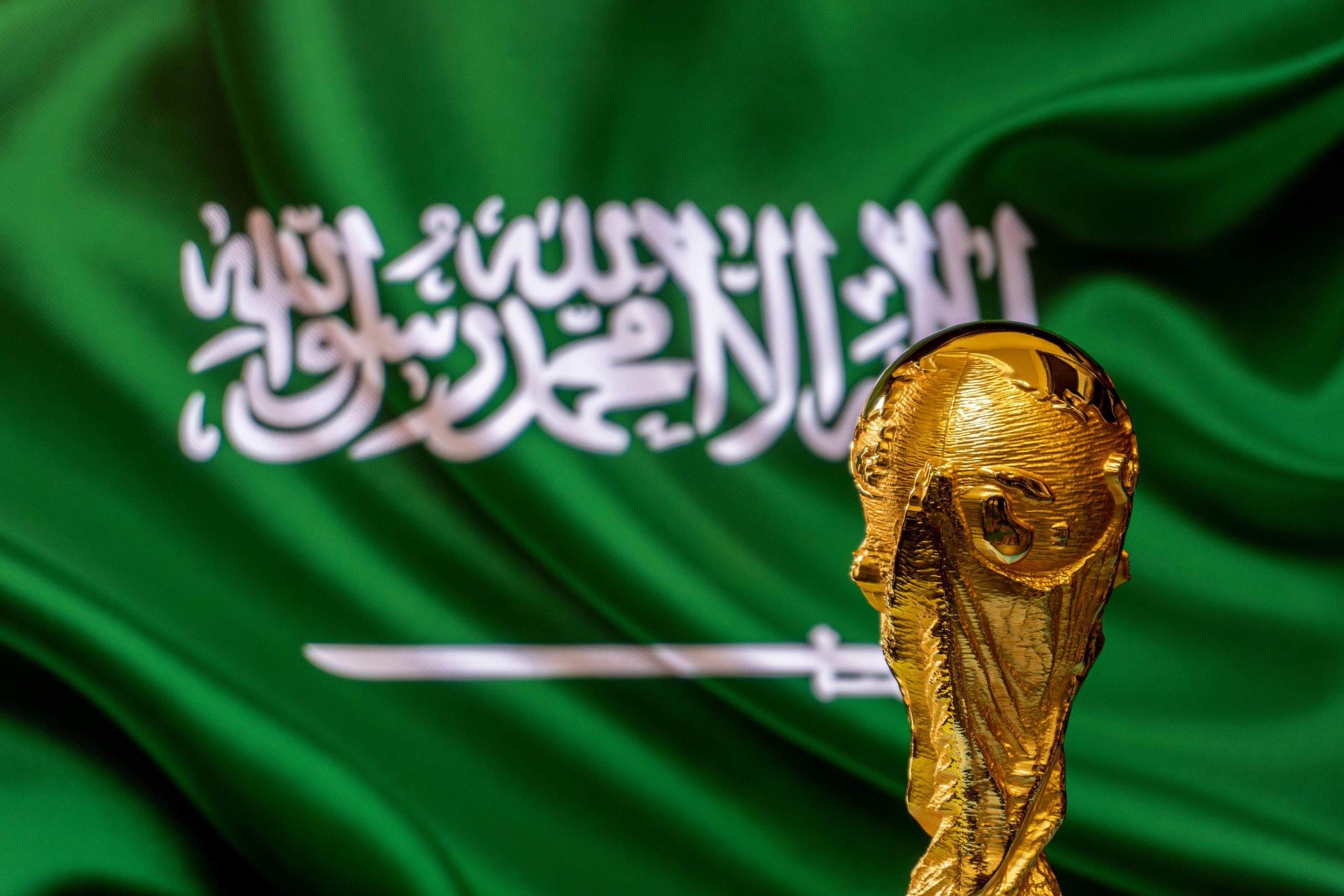Last month’s official confirmation that Saudi Arabia has been chosen as the host of the 2034 World Cup is evidence that sport has a long way to go when it comes to the protection of human rights and freedoms.
Saudi Arabia’s acquisition of the most prestigious competition in international football is just the state’s latest foray into the sporting world. The state has already been accused by critics of sportswashing – using sport to divert attention from its bad practices – due to other hosting and funding duties in Formula 1 races and golf tournaments, amongst other events.
It is no surprise that Saudi Arabia is keen to enhance its international standing; the nation caused global outrage in 2018 when journalist Jamal Khashoggi was murdered at the Saudi consulate in Istanbul, an act that is believed by US intelligence to be state sanctioned but which Saudi Arabia strongly denies.
Lawyer Rodney Dixon, who has represented Khashoggi’s fiancée Hatice Cengiz, has warned against a Saudi World Cup. “FIFA should not permit Saudi Arabia to host the World Cup if it continues to flagrantly disregard human rights in several areas in breach of Fifa’s own policies,” he jointly wrote in a legal submission with other legal experts. “It is obvious that Saudi Arabia falls very far short of those requirements.”
Concerns have been raised about Saudi Arabia’s commitment to protect human rights and freedoms in other areas such as their poor record on women’s rights, LGBTQ+ rights, treatment of migrant workers and lack of media freedom. In Freedom House’s latest Freedom in the World report the state was categorised as not free, as “Saudi Arabia’s absolute monarchy restricts almost all political rights and civil liberties”. Such a description hardly lends itself to the idea that a Saudi World Cup is deserved, or even well intentioned – despite the insistences from football’s governing authorities.
FIFA’s decision to award the World Cup to Saudi Arabia has therefore already been held under much scrutiny. The legitimacy of the decision-making process itself has been called into question after the governing body implemented a fast-track application process which resulted in Saudi Arabia’s bid being unopposed.
The decision is also potentially a violation of FIFA’s own human rights policy, which was adopted by the organisation in 2017 and pledges to “go beyond its responsibility to respect human rights… by taking measures to promote the protection of human rights”. By awarding the world’s most-watched sporting event to a nation with such an unfavourable record on human rights and freedoms, FIFA falls far short of such promises.
However, FIFA isn’t the only governing body to back the move. The Football Association (FA) – England’s leading authority on football – also supported Saudi Arabia’s bid, a move that has been defended by FA chair Debbie Hewitt.
A statement from the FA said: “[The Saudi Arabian Football Federation] assured us that they are fully committed to providing a safe and welcome environment for all fans.” This line was repeated by Saudi Arabia’s sports minister Prince Abdulaziz bin Turki Al Faisal, who claimed that “everyone is welcome” at the tournament. However, with same-sex activity strictly forbidden in the state, it’s unlikely that LGBTQ+ people will feel confident about such a warm welcome – Jake Daniels, the only openly gay active male professional footballer in the UK, told the BBC last year that he “wouldn’t feel safe” at a Saudi World Cup.
Saudi Arabia has already shown its desire to become a big name in the footballing world. Having hosted the 2023 Club World Cup, they have since been awarded the privilege of hosting the 2025 Supercoppa Italiana and the 2027 Asian Cup, as well as agreeing a deal to host the Spanish Super Cup until at least 2029.
Further ventures have also been made into a number of different sports, with the state hosting major events such as the boxing match between Tyson Fury and Oleksandr Usyk, which took place last year and was described as “the biggest pay-per-view fight in history”.
Saudi Arabia defends itself against claims that it is utilising sport as a means of distracting the public from their poor human rights record by suggesting that it is using sport as a means of changing attitudes. However, similar arguments were used by Qatar when protests were made against it hosting the 2022 World Cup, but such change has failed to materialise.
We have a duty to question the motivations behind the sudden interest of undemocratic states in sporting events, and to call out the human rights abuses in such states that prevent citizens from exercising their freedom of speech and expression. Football – and sport in general – holds a great deal of soft power as a political arena due to its popularity and reach. Those who seek to exploit such power at the expense of rights and freedoms should be condemned, not supported.






